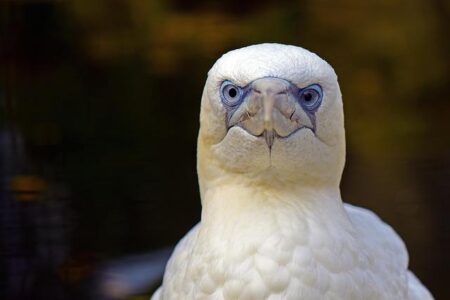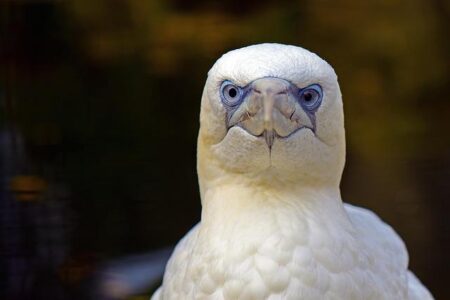Gabon Advances Marine Conservation with Tech-Enabled Partnership
In a landmark initiative to protect its marine biodiversity and curb illegal fishing activities, Gabon has joined forces with Global Fishing Watch, a prominent nonprofit organization championing ocean transparency and sustainability. This alliance is designed to bolster oversight and accountability in managing Gabon’s extensive coastal waters, an area celebrated for its rich aquatic life. Illegal, unreported, and unregulated (IUU) fishing remains a critical threat not only to marine ecosystems but also to the livelihoods of coastal communities. By embracing innovative technology alongside international collaboration, Gabon exemplifies the growing momentum among African nations committed to tackling maritime crimes effectively.
Leveraging Technology for Transparent Fisheries Management
The partnership centers on deploying state-of-the-art monitoring systems that harness satellite data and real-time vessel tracking capabilities. These tools empower Gabonese authorities to detect unauthorized fishing operations swiftly within their territorial waters while ensuring adherence to fisheries regulations. Key components of this initiative include:
- Enhanced Coastal Surveillance: Continuous observation of fishing activities along Gabon’s 800 km coastline using satellite imagery.
- Data Integration & Sharing: Seamless exchange of information between government agencies, local stakeholders, and international partners for informed decision-making.
- Community Involvement Programs: Educational outreach aimed at promoting sustainable fishing practices among artisanal fishers.
This comprehensive approach not only safeguards vital fish populations but also strengthens governance frameworks essential for long-term ocean health.
Cutting-Edge Tools Transforming Enforcement in Gabon’s Waters
The adoption of advanced technologies marks a pivotal shift in how Gabon combats IUU fishing across its maritime domain. Through collaboration with Global Fishing Watch, the country now utilizes sophisticated satellite monitoring platforms that provide near-instantaneous insights into vessel movements. This capability enables rapid identification of suspicious patterns such as illegal incursions into protected zones or unauthorized transshipments at sea.
- Real-Time Analytics: Algorithms analyze vast datasets on vessel behavior to flag anomalies indicative of illicit activity.
- Automated Alert Systems: Immediate notifications alert enforcement teams when potential violations occur within designated marine protected areas (MPAs).
- Crowdsourced Reporting Initiatives: Empowerment of local communities through mobile apps and training sessions encourages grassroots participation in surveillance efforts.
The impact is measurable: recent reports indicate a significant reduction—estimated at over 30%—in detected IUU incidents since implementation began in early 2024. Additionally, joint patrols equipped with these technological assets have enhanced deterrence capabilities while fostering stronger regional cooperation across Central African maritime borders.
Recommendations to Fortify Collaborative Actions Against IUU Fishing
Tackling the multifaceted challenge posed by IUU fishing demands an integrated strategy combining technology adoption with robust policy reforms and stakeholder engagement. To maximize effectiveness, it is recommended that governments and partners focus on the following areas:
- Capacity Development: Invest substantially in training enforcement personnel on interpreting satellite data analytics and utilizing digital monitoring tools efficiently.
- AwareÂness Campaigns:
- Tightening Legal Measures:
Review existing fisheries legislation aiming for stricter penalties against offenders involved in IUU activities.
- Spearheading Tech Partnerships:
Collaborate closely with technology firms specializing in supply chain traceability solutions ensuring transparency from catch-to-market.
An additional strategic priority involves establishing a regional intelligence-sharing network among African countries bordering key fisheries zones. Such coordination would facilitate prompt exchange of surveillance data enabling synchronized enforcement responses against cross-border illicit operations.
| Initiative Focus Area | Description | |
|---|---|---|
| African Regional Task Force Formation | Create an intergovernmental unit tasked specifically with gathering intelligence related to maritime crime including IUU fishing threats across shared waters. Â Â Â Â Â Â Â Â Â Â Â Â Â Â Â Â Â Â Â Â Â Â Â Â Â Â Â Â Â Â Â Â Â Â Â Â Â Â Â Â Â Â Â Â Â Â Â Â Â Â Â Â Â Â Â Â Â Â Â Â Â Â Â Â Â Â Â Â Â Â Â Â Â Â Â Â Â Â Â Â Â Â Â Â Â Â Â Â Â Â Â Â Â Â Â Â Â Â Â Â Â Â Â Â Â Â Â Â Â Â Â Â Â Â Â Â |
Establish dedicated teams comprising representatives from member states focused on coordinated operational support. |
| Cohesive Training Programs | Standardize capacity-building workshops targeting law enforcement officers throughout participating countries enhancing interoperability during joint missions. | |
| Synchronized Data Sharing Agreements | Formalize protocols allowing secure sharing access between nations regarding satellite tracking info plus other surveillance inputs improving situational awareness. |
Conclusion: Pioneering Sustainable Ocean Governance Through Innovation & Cooperation
The alliance forged between Gabon and Global Fishing Watch represents a transformative leap forward toward eradicating illegal exploitation within Central Africa’s marine environments. By integrating cutting-edge remote sensing technologies alongside community-driven stewardship models, this partnership sets new standards for transparent fisheries management globally.
As global attention intensifies around safeguarding ocean resources amid escalating environmental pressures—including climate change impacts—the lessons learned here offer valuable blueprints adaptable by other nations confronting similar challenges.
Ultimately protecting our oceans requires harmonized efforts blending innovation with inclusive governance frameworks; initiatives like this illuminate pathways toward resilient seas capable of sustaining both biodiversity richness as well as human prosperity well into future decades ahead.







